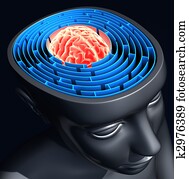

Delirium symptoms can come and go several times during the day. Someone with dementia often isn't sluggish or agitated. A person in the early stages of dementia remains generally alert. The ability to stay focused or maintain focus is impaired with delirium. Dementia usually begins with minor symptoms that get worse over time. The onset of delirium occurs within a short time - within a day or two. Some differences between the symptoms of delirium and dementia include: Tests for dementia shouldn't be done during a delirium episode because the results could be misleading. However, episodes of delirium don't always mean a person has dementia. The most common cause of dementia is Alzheimer's disease, which comes on slowly over months or years.ĭelirium often occurs in people with dementia. Someone with dementia has a gradual decline of memory and other thinking skills due to damage or loss of brain cells. The person may quickly switch back and forth from being restless and sluggish.ĭelirium and dementia may be hard to tell apart, and a person may have both. They don't interact with family or others. People with this type may be inactive or have reduced activity. They also may be anxious, have rapid mood swings or see things that aren't there.

People with this type may be restless and pace the room. This may be the easiest type to recognize.



 0 kommentar(er)
0 kommentar(er)
